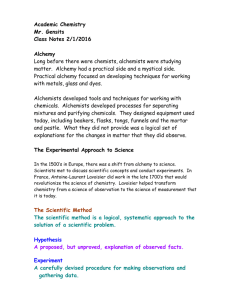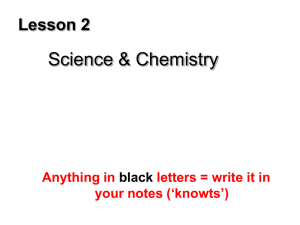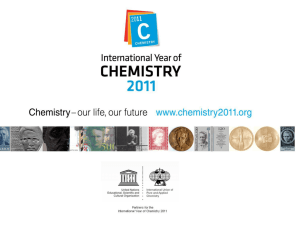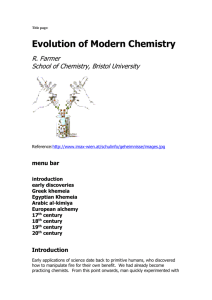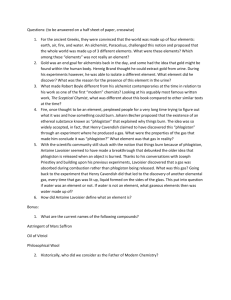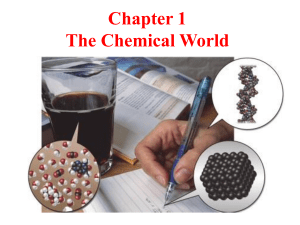Universidad del Valle de México Bicultural High School Chemistry I
advertisement
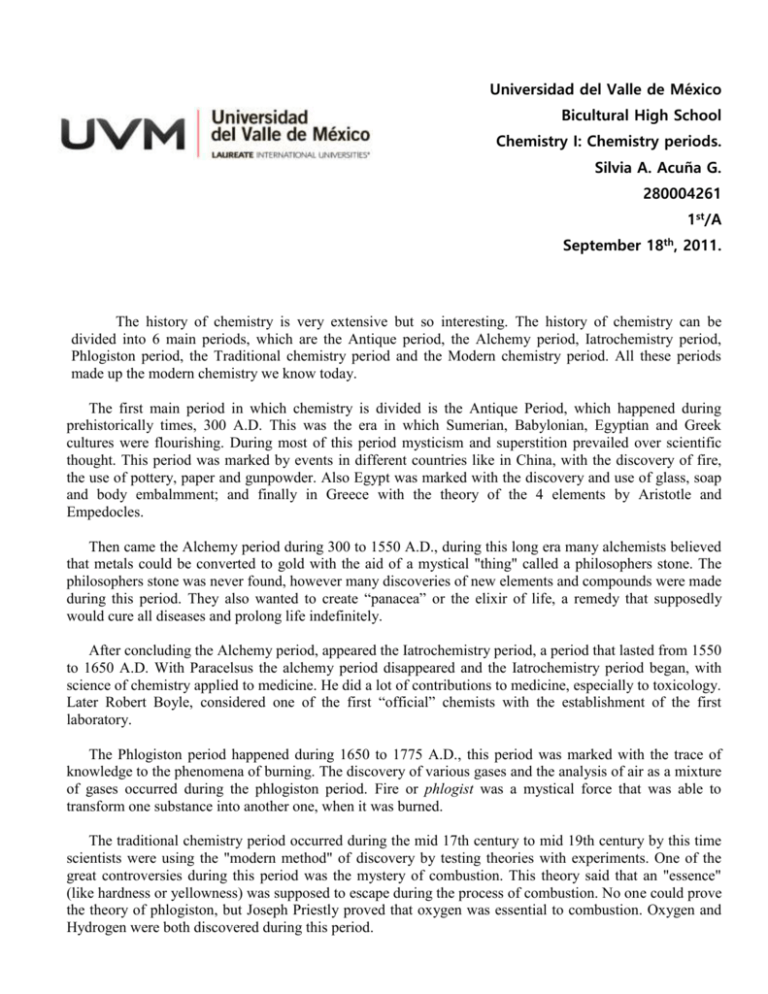
Universidad del Valle de México Bicultural High School Chemistry I: Chemistry periods. Silvia A. Acuña G. 280004261 1st/A September 18th, 2011. The history of chemistry is very extensive but so interesting. The history of chemistry can be divided into 6 main periods, which are the Antique period, the Alchemy period, Iatrochemistry period, Phlogiston period, the Traditional chemistry period and the Modern chemistry period. All these periods made up the modern chemistry we know today. The first main period in which chemistry is divided is the Antique Period, which happened during prehistorically times, 300 A.D. This was the era in which Sumerian, Babylonian, Egyptian and Greek cultures were flourishing. During most of this period mysticism and superstition prevailed over scientific thought. This period was marked by events in different countries like in China, with the discovery of fire, the use of pottery, paper and gunpowder. Also Egypt was marked with the discovery and use of glass, soap and body embalmment; and finally in Greece with the theory of the 4 elements by Aristotle and Empedocles. Then came the Alchemy period during 300 to 1550 A.D., during this long era many alchemists believed that metals could be converted to gold with the aid of a mystical "thing" called a philosophers stone. The philosophers stone was never found, however many discoveries of new elements and compounds were made during this period. They also wanted to create “panacea” or the elixir of life, a remedy that supposedly would cure all diseases and prolong life indefinitely. After concluding the Alchemy period, appeared the Iatrochemistry period, a period that lasted from 1550 to 1650 A.D. With Paracelsus the alchemy period disappeared and the Iatrochemistry period began, with science of chemistry applied to medicine. He did a lot of contributions to medicine, especially to toxicology. Later Robert Boyle, considered one of the first “official” chemists with the establishment of the first laboratory. The Phlogiston period happened during 1650 to 1775 A.D., this period was marked with the trace of knowledge to the phenomena of burning. The discovery of various gases and the analysis of air as a mixture of gases occurred during the phlogiston period. Fire or phlogist was a mystical force that was able to transform one substance into another one, when it was burned. The traditional chemistry period occurred during the mid 17th century to mid 19th century by this time scientists were using the "modern method" of discovery by testing theories with experiments. One of the great controversies during this period was the mystery of combustion. This theory said that an "essence" (like hardness or yellowness) was supposed to escape during the process of combustion. No one could prove the theory of phlogiston, but Joseph Priestly proved that oxygen was essential to combustion. Oxygen and Hydrogen were both discovered during this period. The modern chemistry period, 1775 A.D. to present, is the era where chemistry flourished and began with the invention of the scale and the law of conservation of mass by Antoine L. Periodic Table appeared and more phenomena were understood, like radioactivity.



